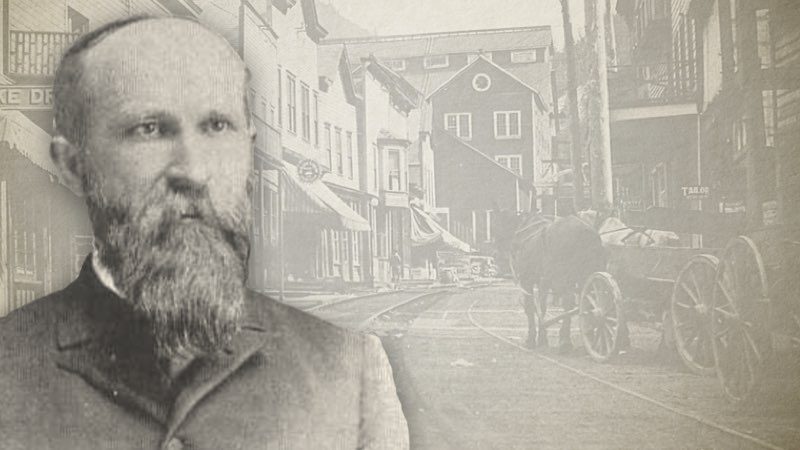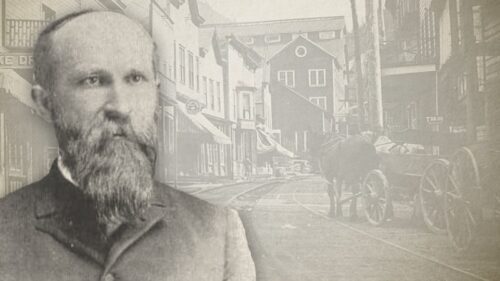J. A. Shakelford
Author of the “Compendium Of Baptist History”. Please inform the Editor of the AHB (via the Contact page) if you have biographical information on this author. Thank you.
Shackelford on Baptist History (Complete)
-
Chapter 6: Heresies and Persecutions (A.D. 34-426)
Heresies and corruptions begun to creep into the churches very early in their history. Even during the time of the apostles there was a strong tendency to introduce Jewish rites into the Christian churches, and if the apostles had not learned that "eternal vigilance is the price of liberty," they did learn that the most untiring vigilance was necessary to preserve the churches in purity of doctrine and discipline. Man naturally desires a ritualistic service and would rather worship the seen than the unseen. Very early in the first century some churches were found drifting away from the simple principles which governed and controlled the true churches of Christ; they became corrupt in doctrine, and introduced innovations and false practices into their worship. It may…
-
Chapter 7: Waldensean Period (1260 Years)
"And the woman fled into the wilderness, where she hath a place prepared of God that they should feed her there a thousand two hundred and three score days. And to the woman was given two wings of a great eagle, that she might fly into the wilderness, into her place, where she is nourished for a time, times, and a half time, from the face of the serpent." (Rev. 12:6,14 "And when they shall have finished their testimony, the beast that ascendeth out of the bottomless pit shall make war against them and shall overcome them, and kill them." (Rev. 11:7) We now enter upon the wilderness period of the church, or what is more frequently called the Waldensean period. It is admitted that…
-
Chapter 8: Waldensean Period (Continued)
A.D. 500 ANABAPTISTS.—In the year A. D. 500, we find Anabaptists existing in France and Spain. ''In the language of councils at this period, Christians are denominated, either from their opinions, heretics, or with a view to their discipline, schismatics; but there was one article of discipline in which they were all agreed, and from which they were frequently named, and that was BAPTISM. They held the Catholic community not to be the church of Christ; they therefore rebaptized such as had been baptized in that community, before they admitted them to their fellowship. For this conduct they were called Anabaptists." There never has existed any fellowship between Baptists and Catholics, but on the contrary, an obstinate declaration and refusal upon the part of each…
-
Chapter 9: Waldensean Period (Continued)
A.D. 1019. ALBIGENSES.—In the year 1019, we find the Catholics inflicting their accustomed persecutions upon the Albigenses in France. The Catholic idea of salvation by works, was so completely rooted and grounded in the people of that faith that no effort was made to propagate their doctrines except by compulsion. The idea had become universal, among them, that out of their church was no salvation, and that the end justified the use of any means, howsoever wicked, which might be used to compel submission to their faith. "With the Catholic, out of the church was death; within it was life, and in its maddening thirst for power, the Catholic party sought to crush everything beneath its feet, which it could not gather within its folds.…
-
Chapter 10: Waldensean Period (Continued)
A.D. 1110. Petrobrusians. About the year 1110, in the South of France, in the provinces of Languedoc and Provence, Peter de Bruys appeared, preaching the gospel with great power, and inveighing against the ritualistic forms of worship as practiced by Catholics. Great numbers were said to have been converted to his doctrines, which he continued to preach for twenty years, when he was burned at Giles, a city of Languedoc, in France, in the year 1130. Mosheim says this was done by an enraged populace, who were instigated by the Romish clergy, whose traffic was in danger from the enterprising spirit of this reformer. Nothing so stirs up the Romish clergy as opposition to their masses. If ''mass is the creative principle of popery," ignorance…
-
Chapter 11: Waldensean Period (Continued)
History tells us that in the dark ages, the Waldenses spread themselves all over Europe, but were everywhere treated as “the filth of the world and the offscouring of all things." Each succeeding generation seemed to increase in hatred towards these unfortunate people, and gave vent to its pent up fury with increased energy. Mr. Jones says, "During the dark ages which succeeded the invasion of Europe by the barbarous nations, when feudal anarchy distracted the civil governments and a flood of superstition had deluged the church, Christianity, banished from the seats of empire, and loathing the monkish abodes of indolence and vice, meekly retired into the sequestered valleys of Piedmont. Finding there a race of men unarrayed in hostile armor, uncontaminated by the doctrines…


